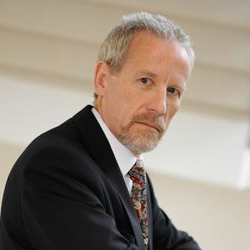
by Keith Grint
- 3 November 2021
Share:
I write this on the eve of COP26, when we hover over an environmental code red. I’m thinking about switching to an electric car, but they are very expensive. The British government seems uninterested in providing adequate public infrastructure for such vehicles and instead wants to open up another coal mine and keep looking for oil. The temptation to respond fatalistically is unremittingly powerful: If the climate is heading for catastrophe at such a rapid rate of knots, what can we, as individuals, do? After all, we in the UK are responsible for less than 2 percent of the global carbon emissions, and even if we cut that in half, it wouldn’t make much difference, given the significance of carbon emissions by China, India, and the USA. If those three economies continue to invest in coal, gas, and oil production and they, and the rest of the world, continue to support oil-based production and transport systems, then we appear to be doomed. Such a pessimistic response reminds me of scenes from Neville Shute’s 1957 novel, On the Beach. The post-apocalyptic story is set in Melbourne in 1963, after a nuclear war has destroyed everything in the Northern Hemisphere and radiation is slowly, and inevitably, moving south. Spoiler Alert: It ain’t a happy ending! However, the point about it is how most people acquiesce, even though a few resist to the end. Fortunately, we are not facing such a dastardly fate, but how do we mobilize the population to take responsibility for the planet when their personal contribution might appear to them to be materially irrelevant?
In his work The Myth of Sisyphus, Camus’ (1942/2000) answer to the riddle of actions in the face of apparent absurdity is to consider actions as existential protests. Sisyphus defied the gods and was condemned to push a boulder uphill, watch it tumble back down, and repeat the process forever. This is the reality for many people. We, like Sisyphus, are condemned to ostensibly pointless actions. Only in the moment of realization that there is no resolution to this absurdity, do we accept our fate and accommodate ourselves to it, knowing that we are free and that the legitimate response is to revolt against the meaninglessness: “and in that day-to-day revolt he gives proof of his only truth — which is defiance…. One must imagine Sisyphus happy” (Camus, 1942/2000, p.111). Similarly, Primo Levi (1947/1987) describes the actions of a prisoner in Auschwitz, an ex-soldier called Steinlauf, who cleans his shoes every day, not because he must and not because doing it might save him, but because he wants to maintain his dignity in the face of terrifying absurdity.
Another part of the solution might be to rethink our approach to leadership and its fixation, ironically, with individuals. It’s ironic because we often feel that we, as individuals, can do so little but that our leaders, as individuals, are somehow endowed with attributions of power beyond our wildest collective imaginations. Once our presidents, prime ministers, and glorious leaders have taken up the cause, then we can relax because they will fix everything. Yet, most leaders are often surprised by how little influence they actually have and appear disappointed when there actually aren’t any “levers of power” to pull because power doesn’t work like a mechanical lever; power is the consequence of others’ action, not the cause of it. If you don’t believe that, try ordering your children to do something they don’t want to do, irrespective of your threats.
If we switch from considering leadership as concerned with larger-than-life characters and great achievements to imagining leadership as the consequence of followers’ achievements, we might reconsider the way individuals can be encouraged to make a difference.
If we switch from considering leadership as concerned with larger-than-life characters and great achievements to imagining leadership as the consequence of followers’ achievements, we might reconsider the way individuals can be encouraged to make a difference. Rather than leadership being restricted to the gods, it might instead be associated with the opposite. Arundhati Roy described her (1997) novel The God of Small Things, as “a book where you connect the very smallest things to the very biggest: whether it’s the dent that a baby spider makes on the surface of water or the quality of the moonlight on a river or how history and politics intrude into your life, your house, your bedroom” (as quoted in Barsamian, 2007). Here I want to suggest that leadership is better configured as The God of Small Things, an accretion of small practices that can facilitate systemic effects. In short, today’s Big Idea is that there isn’t one; there are only lots of small actions taken by followers that combine to make a difference. A society or an organization is not an oil tanker that goes where the captain steers it but a living and disparate organism, a network of people, materials, culture, and politics – and its direction and speed is thus a consequence of many small configurations, decisions, and acts. Or, as British Secretary of the Treasury William Lowndes (1652–1724) suggested, “Take care of the pence, and the pounds will take care of themselves” (Stanhope & Stanhope, 1774, p.334). This has been liberally translated as “Take care of the small things and the big things will take care of themselves,” but the important thing here is to note the shift from individual heroes to multiple heroics. This doesn’t mean that leaders are irrelevant; their role is critical but limited and dependent upon the actions of subordinates. Another way of putting this is that the traditional focus of many leadership studies — the decision-making actions of individual leaders — is better configured as the consequence of “sense-making” activities by organizational members.
This implies two contradictory things. First, individual actions, like that of Greta Thunberg in 2018 sitting outside the Swedish Parliament calling for a “school strike for the climate,” have ramifications that could not have been foretold. In effect, individuals can make a significant difference through their singular actions that initially appear to have little chance of changing anything. But second, this does not mean that we can just leave it to Greta — now as a charismatic leader — to sort out the world while we (insignificant minions) continue to pollute the planet. Such a response to the arrival of a charismatic leader in the face of a crisis is exactly how Max Weber foresaw the potential shift to an “irresponsible” mass in post WW1 Germany. It also embodies that most disingenuous of actions in the face of a critical problem: looking the other way. As Edmund Burke didn’t say (but should have): “The only thing necessary for evil to prevail is for good men [and women] to do nothing.” In effect, to disengage from social responsibility is to do nothing and that ensures the problem continues. There are, then, no “innocents” in this environment; there are just those proactively engaging in damage, those pro-actively trying to resist them, and those whose inactivity ensures damage continues. It has always been thus: Whether we are talking about antisemitism, racism, or misogyny, it is the “neutral” complicity of the many that allows bigotry to continue.
This is a critical assault upon the idea that leadership can be reduced to the personality and behavior of the individual leader and implies that we should recognize that organizational achievements are just that — achievements of the entire organization rather than merely the consequence of a single heroic leader. Yet, although it is collective leaders and collective followers that move the wheel of history along, it is often the formal or more Machiavellian individual leaders who claim the credit, leaving most people to sink unacknowledged by history, nameless but not pointless. George Eliot (1965, p.896) makes this poignantly clear at the end of her novel Middlemarch (1871/2) in her description of Dorothea:
Her full nature, like that river of which Cyrus broke the strength, spent itself in channels which had no great name on the earth. But the effect of her being on those around her was incalculably diffusive: for the growing good of the world is partly dependent on unhistoric acts; and that things are not so ill with you and me as they might have been, is half owing to the number who lived faithfully a hidden life, and rest in unvisited tombs.
So, why should I get rid of my gas-guzzling car when it will make so little difference to the world? Because (1) I don’t know what the ramifications on others might be, and if just a few others do the same, then collectively we might help a bit. (2) Because if I don’t, then I am, in effect, part of the problem not part of the solution — and we should resist where we can. (3a) Because I want to look my grandchildren in the eye and tell them that I actually care for their future. And (3b) because my grandchildren are very scary and very unforgiving….
References
Barsamian, D. (2007, July 16). Interview with Arundhati Roy. The Progressive Magazine. https://progressive.org/magazine/interview-arundhati-roy-Barsamian
Camus, A. (2000). The Myth of Sisyphus (J. O’Brien, Trans.). Penguin. (Original work published in 1942; Original Translation published in 1955).
Eliot, G. (1965) Middlemarch. Penguin. (Original work published in 1871/2).
Levi, P. (1987). If This Is a Man. Abacus. (Original work published in 1947)
Roy, A. (1997) The God of Small Things. Random House.
Shute, N. (1957) On the Beach. Heinemann.
Stanhope, P.D., & Stanhope, E. (1774). Letters Written by the Late Right Honourable Philip Dormer Stanhope, Earl of Chesterfield, to His Son, Philip Stanhope, Esq. Late Envoy-Extraordinary at the Court of Dresden: Together with Several Other Pieces on Various Subjects: In Four Volumes. Volume 2. Dodsley. https://www.google.com/books/edition/Letters_Written_By_The_Late_Right_Honour/eGZCAAAAcAAJ

Keith Grint is Professor Emeritus at Warwick University. He has held Chairs at Cranfield University and Lancaster University and was Director of Research at the Saïd Business School, Oxford University. He is a Fellow of the International Leadership Association (ILA) and Professorial Fellow of the Australian Institute of Police Management (AIPM). He is also a founding co-editor with David Collinson of the journal Leadership, and co-founder of the International Studying Leadership Conference. He received ILA’s Lifetime Achievement Award in 2018. His books include The Arts of Leadership (2000); Organizational Leadership (2005); Leadership: Limits and Possibilities (2005); Leadership, Management & Command: Rethinking D-Day (2008); Leadership: A Very Short Introduction (2010); and Mutiny and Leadership (2021).


